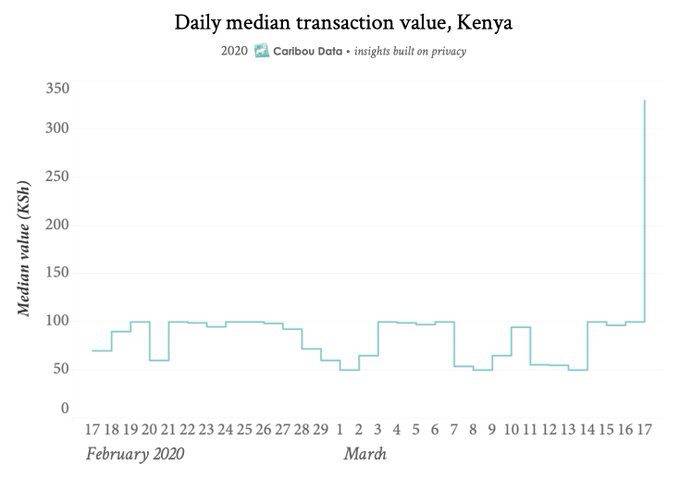Investing In Africa During A Pandemic: 3 Tech Sectors That May Be “Recession-Proof”

COVID-19 and economic catalepsy
Early projections made out the year 2020 to be the “winning shot” the world so desperately needed. But things have unraveled rather quickly; the world’s now facing a biting recession.
Fast rewind to January and Africa’s economic outlook, for instance, was looking pretty good. The African Development Bank (AfDB) predicted a 3.9 percent growth in 2020 and 4.1 percent in 2021. But that was before the coronavirus pandemic happened; before the global economy was upended.
Barely two months after the AfDB’s initial projections were made public — with only 61 confirmed COVID-19 cases in Africa at the time — the United Nations Economic Commission for Africa (UNECA) revised the continent’s growth projections downwards to 2 percent.
And some weeks later, the World Bank made the outlook seem even bleaker when it suggested that Africa is headed towards its first recession in a quarter of a century.
The COVID-19 crisis has only deepened since then. Globally, over 3.4 million infections have been recorded so far with over 240,00 deaths. In Africa, the confirmed cases have surpassed 40,000 with over 1,600 deaths.
The disruption to normal socio-economic activities has been staggering. The bleak economic outlook, especially for Africa, can largely be attributed to disrupted value chains, reduction in foreign direct investment (FDI) and remittances, and direct hits to sectors such as tourism and oil.
But while some sectors are comatose, others might yet thrive
It would be fool-hardy to think of any industry as completely “recession-proof,” but it is undeniable that tech-enabled sectors may be more likely than others to withstand COVID-19 and its aftershocks.
It does seem like a boon time for the digital economy as people find new ways to work and communicate, and many businesses take their services online.
In the midst of a pandemic, it cannot be completely certain which sectors or companies will hold their own. However, due to the nature of COVID-19, tech-enabled companies are well-positioned to witness increased demand from individuals, businesses and even governments to bridge the existing infrastructural gaps.
For investors looking to build a recession-resilient portfolio or business leaders looking for new opportunities, there are a number of sectors that may be better equipped to thrive during this pandemic.
In the following parts of this article, we identify three sectors that are likely to survive and even thrive in spite of the COVID-19-fuelled economic crisis.
- Fintech/Digital Finance
Given the stay-at-home orders and debates over the risk of infection due to the handling of cash, mobile payments are likely to become more popular.
In Kenya, both telcos and banks that operate mobile money services, have either eliminated or significantly reduced transaction fees.
In an earlier story, we had detailed how the suspension of certain fees was influencing the activities of mobile money users in Kenya. Nigerian fintech startup, Paga, is also achieving the same, having reduced fees during this period. In South Africa, online payments are also soaring.

Source: Caribou Data
Even before prior COVID-19 happened, fintech somewhat has a reputation as the largest destination for venture capital investment in Africa. In 2019, it accounted for over 50 percent of the USD 1.34 Bn raised by African startups, as highlighted in the 2019 African Startup Funding Report put together by WeeTracker.
By leveraging technology, companies in Africa have pioneered mobile money and introduced new approaches to online payments, lending and investments in a region where retail banking and consumer lending remain underdeveloped.
COVID-19 is likely to further accelerate this trend as more people are likely to get onboard the digital finance train.
- Digital health/Health-tech
Africa’s fragile healthcare system already seems strained as it is. The deficiencies of the healthcare sector means that only a small number of infected patients can be handled at a time. This is due to the limited number of well-equipped hospitals and the shortage of skilled medical personnel.
Some of these holes in the healthcare systems can be plugged with technology. These tech-enabled solutions could involve software for self-assessment and symptom-checking, freeing up doctors to attend to severe and urgent cases.
Startups like 54gene, LifeBank, and Flying Doctors Nigeria are among many African health-tech companies that are already making an impact at this crucial time.
On its part, 54gene raised USD 500 K within 24 hours of launching a fund at scaling COVID-19 testing. More recently, the startup closed a USD 15 Mn Series-A round and rolled out mobile testing labs.
Our mobile lab’s unique plug and play feature also eliminates the logistics of shipping samples to another location for the processing which reduces turnaround times for test results. pic.twitter.com/mJwYzZfh50
— 54gene (@weare54gene) April 27, 2020
LifeBank and Flying Doctors Nigeria are also contributing immensely on the frontlines of the war against the pandemic.
In addition, Wellvis, a Nigerian health-tech startup has created a COVID-19 Triage Tool through which users can check their COVID-19 risk category. The solution also provides for remote medical consultations.
Moreover, technologies that support the delivery of medical equipment to remote places, reaching places where they are urgently needed, are also coming to the fore.
Zipline, a medical drone company currently operating in Rwanda and Ghana, for example, is currently holding emergency stocks of masks and gloves so that they can be delivered to hospitals and clinics within minutes.
Meanwhile, Ghanaian startup, mPharma, a prescription drug manager for providers and payers in Africa, is developing software that will enable doctors to schedule tests and receive results once completed.
All these digital health technologies are kind of auditioning during this pandemic. And if they are widely adopted while also proving their effectiveness during this global health crisis, there’s a good chance they will become a big part of public healthcare frameworks even after this pandemic subsides.
- Edtech/Digital education
As schools remain closed indefinitely, over 80 percent of the world’s student population have been impacted. According to UNESCO, over 1 billion learners across the globe have had their classes disrupted due to the pandemic.
But as traditional classroom learning takes a backseat in the face of this crisis, there’s been an acceleration in the adoption of e-learning as governments and schools attempt to minimise interruptions to learning for their students.
Several education innovators have developed new, promising solutions to enable students to continue learning while at home. In Nigeria, some teachers are keeping classes going with tools like Google Classroom, Edmodo, and even Zoom. Also, Tanzania’s Ubongo recently launched its Ubongo Toolkits platform.
Additionally, Kenya’s Eneza Education has partnered with local telecoms giant, Safaricom, to offer a government-accredited curriculum designed and refined for feature phones. Some Kenyan Universities have also partnered with telcos to facilitate remote learning via online channels.
Meanwhile, several other edtech platforms like uLesson, Gradely, eLimu, SimbiBot, BBC Learning, Zeraki Learning, and many others are becoming increasingly relevant.
If these technologies take hold across countries searching for solutions to scale quality education, they may spur more widespread use of digital tools in the classroom and remote learning in the post-COVID-19 world.
Photo by Christina @ wocintechchat.com on Unsplash